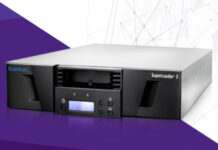
23 July, 2020- ROHM Group Company LAPIS Semiconductor Co., Ltd. recently announced the automotive speech synthesis ICs, ML2253x series, optimized for audible notifications and sound effects in ADAS (Advanced Driver Assistance System) and AVAS (Acoustic Vehicle Alerting System).
In recent years, the increasing proliferation of ADAS and other safety systems designed to notify drivers of vehicle operation and the surrounding environment is prompting auto manufacturers to develop audio systems that utilize sound effects and voice to issue warnings and alerts. As such, reliable voice generation is demanded of these audio systems, which play a major role in maintaining the safety of vehicle occupants and pedestrians. However, conventional solutions utilizing middleware for voice playback are often comprised of multiple components and place a heavy load on the main MCU, requiring significant man-hours to support countermeasures to avoid risk along with software that responds to system changes.
In contrast, LAPIS Semiconductor’s new product not only improves quality by detecting audio defects using a playback anomaly function, but also facilitates system configuration while simplifying software design for the main MCU. LAPIS Semiconductor speech synthesis ICs incorporate all required amps, communication I/F, logic ICs, and memory, enabling configuration of voice prompt systems independently of the main MCU. As a result, they are seeing increased adoption in automotive applications.
The ML2253x series also includes a playback sound anomaly function that can send error signals to the main MCU. This makes it possible to detect playback anomalies such as skipping, contributing to further improvement in the quality of automotive audio output systems. Compared with the conventional compression algorithm, HQ-ADPCM enables to achieve high fidelity sound without distortion. In addition, flash rewrite function from the main MCU enables rewriting of voice data even after shipment.
LAPIS Semiconductor is committed to continue to develop speech synthesis ICs that provide greater convenience by reducing sound design man-hours while supporting safety and comfort of society.


Key Features
1. Playback anomaly detection function contributes to improved quality in voice prompt systems
The ML2253x series incorporates a new playback anomaly detection function that re-digitizes the analog speaker output signal and compares it with the playback data stored in the IC in order to feedback an error signal to the main MCU when an anomaly above the set value is detected. This makes it possible to improve the quality of the entire system.

2. Flash rewrite function from the main MCU enables rewriting of voice data even after shipment
In addition to the standard onboard rewrite function from the ROM writer, a function is integrated for rewriting from the main MCU.
This allows data to be rewritten from the main MCU to either internal Flash memory (in the case of the ML22Q53x series) or external Flash memory (ML22530 series) via SPI I/F, making it possible to rewrite voice data not only during development, but even after shipment.
With this function, it will be possible to support next-generation vehicles equipped with IoT devices that connect to the internet.
3. HQ-ADPCM compression delivers high fidelity along with increased memory savings
The HQ-ADPCM compression method is able to achieve high fidelity while also saving memory (which is typically in a trade-off relationship). Conventionally, the uncompressed PCM format is used, since compressed sound effects and music often become distorted. In contrast, the HQ-ADPCM adopted by the ML2253x series utilizes only 1/5th the memory capacity of conventional compression methods while still providing superior playback quality. Converting voice data to HQ-ADPCM is possible using the Speech IC Utility included in the Sound Device Control Kit.

HQ-ADPCM is a high quality audio compression technology developed by Ky’s
Ky’s is a registered trademark of Kyushu Institute of Technology
4. Integrates multiple functions required for automotive ICs
In addition to supporting high temperature operation (105°C) required in automotive applications, LAPIS Semiconductor’s new series is qualified under the international AEC-Q100 reliability standard for automotive components. A number of conventional anomaly detection functions are also built in, including short-circuit, high temperature, and command transfer error detection, contributing to improved reliability in automotive voice prompt systems.

Automotive ML2253x Series Lineup
| Series Name | ROM Capacity (bits) | Max. Playback Time (sec) | Sampling Frequency | CPU I/F | Output/ Class | No. of Simultaneous Playback Ch | Operating Temperature (°C) | Package | Other |
| ML22Q53x | Internal Flash (2M/4M/16M) | 90/192/ 806 | 6.4 to 48.0kHz | SPI, I2C | 1.0W/ Class AB @5V | 4ch | -40°C to +105°C | TQFP48 | Equipped with playback anomaly detection function AEC-Q100 qualified Serial audio I/F (I2S) |
| ML22530 | External memory (128M max.) | 6,541 |
Availability: Now (samples), July 2020 (OEM quantities)

Support
LAPIS Semiconductor offers the SDCK3 development tool that allows users to create voice data as well as prepare, write, and listen to ROM data stored in LAPIS Semiconductor’s speech synthesis IC. Combining SDCK3 with an optional reference board that enables comprehensive evaluation for both hardware and software.
● Speech Synthesis IC Site
https://www.lapis-semi.com/en/semicon/speech/
● Speech Synthesis IC Support Site
https://www.lapis-semi.com/cgi-bin/MyLAPIS/regi/login.cgi
(New registration is required to login.)
Terminology
AEC-Q100
An international reliability standard for integrated circuits (ICs) used in automotive applications established by the AEC (Automotive Electronics Council), an organization comprised of major automotive manufacturers and leading electronic component suppliers in the US. This standard is widely used for automotive electronic components in the US and Europe.
Serial audio I/F (I2S)
A standard for the serial transmission of digital voice data between ICs.














